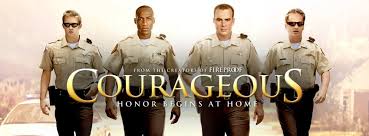Providing a superb introduction to the philosophy of science, Dowe’s Galileo, Darwin, and Hawking contends that there are four basic ways to relate science and religion. Two of them, naturalism and religious science, present these endeavors as antagonistic. By contrast, an independence view understands them as wholly unrelated. Finally, an interaction account sees religion and science as complementary — perhaps even dependent on one another. Dowe finds this last perspective the most historically and philosophically compelling. He argues his case by exploring the history of science, highlighting the life and work of three scientific giants: Galileo Galilei, Charles Darwin, and Stephen Hawking.
Contents:
Acknowledgments
Introduction: Harmony or Conflict?
1. Cosmology and Scripture
Cosmology
Genesis and Hermeneutics
Augustine's Hermeneutics
Calvin's Hermeneutics
Galileo and the Church
Bellarmino's Dilemma
Galileo's Reconciliatory Hermeneutics
Conclusion
2. The Hermeneutics of Science and Religion: Realism and Antirealism
Osiander's Preface
Antirealist Accounts of Science
Scientific Realism and Inference to the Best Explanation
Antirealism in Philosophy of Religion
3. Knowledge and Power
The Heritage of Greek Logic and Geometry
The Image of God
Descartes, Rationality, and the Perspicuity of Nature
Francis Bacon's Vision of Science and Technology
Bacon and the Cultural Mandate
Twentieth-Century Critiques of the Baconian Vision
From God to Science and Back:
The Mutual Relevance of Science and Religion
4. Miracles
Hume's Theory of Rational Belief
Testimonial Evidence
The Concept of a Miracle
Hume's First Argument against Miracles
A Problem for Testimony
Hume's "Limitation"
Hume's Second Argument against Miracles
Schlesinger's Defence of Miracles
5. Creation and Evolution
Teleological and Mechanical Explanation
Paley's Design Argument
Darwin's The Origin of Species
Natural Selection or Special Creation?
Darwin and God
Darwin and Asa Gray
From the Monkey Jibe to the Monkey Trial
Creation Science
6. Big Bang Cosmology and God
Kalãm Cosmological Argument and the Infinite Universe
Big Bang Cosmology
The Anthropic Principle
God as an Explanation
Chance and Many Worlds Explanations
The Inverse Gambler's Fallacy
The Observer Selection Effect
Denial of the Need for Explanation
7. God and Chance
The Chance Worldview
Providence
Three Models of Providence
Quantum Chance
Chance and Providence
Physical Chance, Divine Cause
Physical Chance, No Divine Cause
Meaningless Coincidences
Conclusion
8. The Interaction of Science and Religion
Mutual Interaction
Defeasibility and the God of the Gaps Objection
Conclusion
Bibliography
Index
Reviews
Science & Theology News“A nuanced interpretation of the conflicts that characterize the history of interaction between science and religion…. Worth pondering in all its detail.”
- View other titles by Phil Dowe
- Send us your review of Galileo, Darwin and Hawking: Interplay of Science, Reason and Religion
ISBN: 9780802826961
Catalogue code: N/A
Publisher: WM B EERDMANS PUB CO - published 16/05/2005
Format: Paperback

